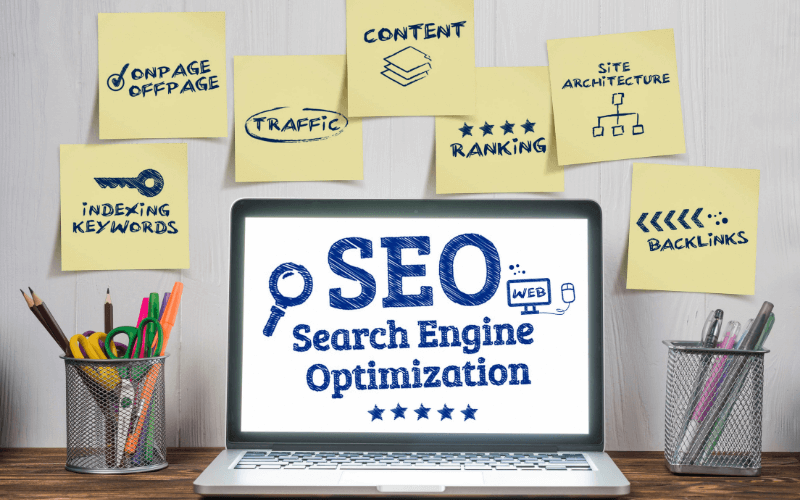SEO tends to optimize the quality of content to modify the rank on the search engines. It mostly targets bringing unpaid traffic to the websites, which is also known as organic traffic. SEO might seem like a tricky process, but it is easy if you learn it well. SEO is an entirely different language in the search engines. If you are new to the world of SEO, you might encounter additional terms that will pass over your head. However, you do not have to bite your nails as understanding these terms is getting convenient day by day.
Various SEO jargon can easily confuse beginners with a little knowledge. Some people even avoid learning essential terms and would hire a digital marketing agency for SEO services. In this case, it is imperative to know the minor details before entering the professional grounds. With that said, let’s break down nine SEO terms that can give a hard time to the newbies.
SEO Terms Every Beginner Should Know
1. Authority
Authority is the most common terminology that you will always come across on the internet. The authority describes the website’s ability to rank in the search engine. It determines how and when the page will get ranked higher on the search results. The factors involved in deciding the authority include site history, page history, page traffic data, and the quality of the content.
Authority tends to serve as the strongest pillar for the search engine optimization of any website. The term gets further divided into two metrics, page authority and domain authority. As the name implies, the page authority will only measure the quality of the specific web page. The domain authority refers to the age, size, and popularity of the particular domain.
Numerous tools allow you to determine the domain authority of the website. The Moz tools can provide you the predictable data on how well your website can rank on the search engines. Meanwhile, you can also find domain rating on Ahref tools, which provides the ranking metric on a scale of 1-100. While we talk about Moz DA vs Ahrefs DR, the notable difference is that one focuses on prediction, and the other directly checks the link’s popularity.
2. Crawlers
While doing SEO, you might also come across the term crawling or crawlers, which will instantly confuse you. Crawling, as the name implies, is the process of crawling the websites, which is mostly done by search engine crawler bots. These search engine bots crawl through the links and pages within the websites and rank them for the specific keywords. The process of crawling gets started by the robot.txt file from your website. From here, these bots will discover the interlinked pages and websites and identify how many pages should get indexed on the search engine.
3. Meta Description
The meta description is another common and most crucial element of search engine optimization. It is a subheading that describes what the page is about in summary. It usually involves two to three sentences that summarize the whole page’s content. The meta description gets displayed under the title of the search result. The meta description is highly essential in ranking your pages on the search engines as per professional recommendations. The relevancy of the meta description is also crucial to get noticed and indexed. In this case, you must always create SEO-optimized and keyword relevant meta description to draw maximum visitors to your website.
If you struggle to write a quality meta description for your content, turn for professional writing assistance online provided by custom essay writers.
4. Keywords
Keywords are the words and phrases that get mostly searched on search engines like Google and Bing. These keywords will help your websites to rank on the search results whenever someone searches. You will be required to use the keywords in the website content to help the pages rank higher. The higher the keyword relevancy, the higher will be the chances to rank in results. Moreover, you might also come across keyword density, which is the number of times the keyword appears in your content. This might seems like a good strategy to rank on google by stuffing all kinds of keywords relevant to your website. But the search engines have made this tactic almost useless as it emphasizes the quality of the content.
It is important to identify the right set of keywords, using the right set of keyword research tools to optimize your content, page and website.
5. Domain Trust
Domain trust refers to the trustworthiness of the website based on the provided content quality and secure access. The search engines consider the domain trust a prime factor for ranking in search engine result pages or known as SERPs. The main reason for that is search engines like Google consider it as the critical element for delivering the best user experience by providing the best and relevant results to the users.
6. Do Follow And No Follow Links
The do-follow and no-follow links simplify hyperlinking the web site’s links and passing the authorities. If you have the do-follow links on the web content, that means you are allowing the crawler bots to follow and clear the authority. Meanwhile, the no-follow links restrict the bots to do that to each website. Moreover, it is a simple fact that the more do-follow links can assist in better ranking. Since the crawler bots will pass the link juice to multiple websites, it can easily recrawl your websites, thus indexing the search engine.
7. Breadcrumbs Navigation
Breadcrumb is a navigation process to make your webpages more user-friendly and interactable. Not just the users, but they also help the search engines to identify the relationship between the pages. Many blogs and eCommerce websites use the breadcrumbs to create a horizontal list of pages and their relationship.
8. Sitemap
A sitemap is a simple file available on websites that allows the crawler to access all the pages and index them on the search engine. The sitemap is a critical element for SEO of any website. One must create an optimized sitemap that involves three clicks to reach any page on your website.
9. Seo Audit
SEO audit is the process of performing analysis on your website for its performance on the search engine indexing and ranking. The SEO audit covers all the technical and content aspects of your website. Moreover, it also suggests how you should fix them to comply with search engine guidelines.
Final Words
SEO is a broad subject with countless terms and processes. As you dive deeper, you will find more words and practices to understand the SEO at a professional level. Moreover, the step-by-step research on your side can help you save a lot of time on confusing jargon.




